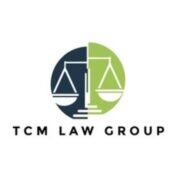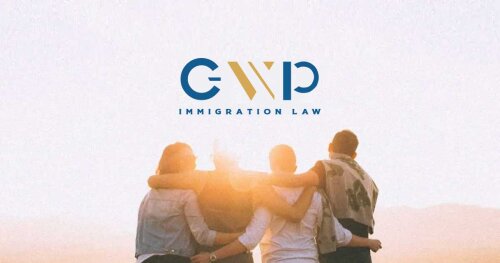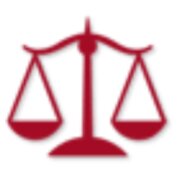Best Child Abuse Lawyers in Las Vegas
Share your needs with us, get contacted by law firms.
Free. Takes 2 min.
Free Guide to Hiring a Family Lawyer
List of the best lawyers in Las Vegas, United States
About Child Abuse Law in Las Vegas, United States
Child abuse law in Las Vegas is governed by Nevada state law and implemented locally through Clark County agencies and the juvenile court system. The law addresses physical abuse, sexual abuse, emotional abuse, and neglect. When authorities receive allegations or reasonable suspicion of abuse, the matter may be handled as a child protection investigation, a criminal investigation, or both. Agencies involved commonly include the Nevada Division of Child and Family Services, the Clark County Department of Family Services, local law enforcement, and the juvenile court. The legal processes that follow can affect custody, parental rights, criminal liability, and the child-s future safety and well-being.
Why You May Need a Lawyer
A lawyer experienced in child abuse matters can provide critical guidance whether you are a parent, caregiver, alleged victim, alleged perpetrator, or a professional facing a reporting or custody question. Common reasons to consult a lawyer include:
- If you or a family member is accused of abusing or neglecting a child and you face criminal charges or a child protective services investigation.
- If your child has been removed from your home or a petition has been filed in juvenile court seeking temporary custody or termination of parental rights.
- If you are the alleged victim or guardian of a victim and need help obtaining protective orders, pursuing criminal charges, or understanding victims rights and remedies.
- If you are a mandated reporter unsure about your legal obligations or facing a potential civil or criminal penalty for failure to report.
- If there are custody disputes where allegations of abuse affect parental access, visitation, or long-term custody arrangements.
- If you need help navigating overlapping criminal, juvenile, and family court proceedings while protecting privacy and legal rights.
Local Laws Overview
Nevada law defines and criminalizes many forms of child abuse and neglect. The state sets standards for mandatory reporting, investigative procedures, and the juvenile court s authority to protect children. Key points that are particularly relevant in Las Vegas and Clark County include:
- Definitions and offenses: Nevada law covers physical abuse, sexual abuse, exploitation, emotional abuse, and neglect. Criminal penalties vary depending on the severity of injury, age of the child, and whether sexual conduct is involved.
- Mandatory reporting: Certain professionals such as teachers, medical providers, social workers, law enforcement officers, and others are required to report suspected child abuse or neglect. Failure to report when required can result in penalties.
- Investigations and protective action: When a report is made, child protective services or law enforcement will evaluate the safety of the child, interview involved parties, and may provide services. If the child is in immediate danger, agencies can seek emergency removal and temporary placement.
- Juvenile court jurisdiction: The juvenile court can hear petitions regarding child protection, custody, services, and the termination of parental rights. The court s primary focus is the child s best interests, which can include reunification plans or, in severe cases, adoption or termination.
- Criminal prosecution: Allegations that also constitute criminal conduct can be investigated by police and prosecuted by the county district attorney. Criminal proceedings run separately from dependency and neglect court matters, but findings in one forum can influence the other.
- Services and reunification: Courts typically prefer family preservation when safe. Parents may be required to participate in services such as substance abuse treatment, parenting classes, supervised visitation, or counseling as part of a reunification plan.
- Records and confidentiality: Child welfare and juvenile records have privacy protections, but disclosure rules vary depending on court orders, criminal proceedings, and statutory exceptions. Attorneys can advise on sealing or accessing records in specific situations.
Frequently Asked Questions
What legally counts as child abuse in Las Vegas?
Child abuse generally includes physical injury, sexual abuse or exploitation, emotional harm, and neglect that endangers a child s health or welfare. Specific elements and legal definitions are set by Nevada law and applied by investigators and prosecutors based on the facts of each case.
How do I report suspected child abuse?
Suspected abuse should be reported to child protective services or local law enforcement. Reports can be made by phone to the appropriate agency in Clark County. If a child is in immediate danger, call 911. Mandated reporters must follow specific reporting procedures required by law.
What happens after a report is made?
After a report, child protective services or police will assess the situation, interview the child and adults involved, and determine whether the child is safe. Investigators may offer services, monitor the family, or ask the court for temporary removal if immediate protection is needed. Criminal investigations may proceed in parallel if a crime is suspected.
Can my child be removed from my home?
Yes. If authorities believe the child is in immediate danger, they can place the child in protective custody and seek temporary placement. Removal is intended to protect the child while the situation is assessed, and the juvenile court will review the case and set hearings to determine next steps.
How long can child protective services keep my child?
The length of time a child may be placed outside the home depends on the case specifics, court orders, and progress toward safety and reunification goals. Courts review placement and services at scheduled hearings and expect caseworkers and parents to work toward timely resolutions when reunification is appropriate and safe.
Will I face criminal charges if CPS is involved?
Not always. CPS involvement does not automatically result in criminal charges. However, if investigators or law enforcement find evidence of criminal conduct, the case can be referred to the district attorney for criminal prosecution. Criminal and child protection proceedings are separate but related paths.
What are my rights during an investigation or court process?
Parents and guardians have rights to notice of proceedings, to be represented by counsel, to contest allegations, and to present evidence. Children also have rights, including the right to safety and legal representation in some cases. An attorney can explain specific rights and timelines in your case.
Can a protective order be obtained for a child?
Yes. Protective orders can be sought to prevent contact between an alleged abuser and a child or family members. Courts can impose restraining conditions, supervised visitation, or no-contact orders to protect the child s safety while the legal process continues.
How can I find a lawyer who handles child abuse cases in Las Vegas?
Look for attorneys who specialize in juvenile law, family law, criminal defense, or child protection cases. Bar association lawyer referral services, local legal aid organizations, and specialized child advocacy groups can help connect you with qualified counsel. Many lawyers offer initial consultations to discuss your case and options.
Are there free or low-cost legal options available?
Yes. Nonprofit legal aid organizations, victim advocacy programs, and some public defenders or court-appointed attorneys provide free or reduced-fee assistance depending on eligibility and whether the case is criminal or civil. Contact local legal aid providers and victim services organizations to learn about available help.
Additional Resources
Naming local and state resources can help you find immediate support and legal guidance. Commonly relevant organizations and agencies in Las Vegas and Nevada include:
- Nevada Division of Child and Family Services (DCFS)
- Clark County Department of Family Services
- Clark County Juvenile Court - Family Division
- Las Vegas Metropolitan Police Department - Family Crimes or Child Abuse Units
- Clark County District Attorney s Office
- Local legal aid providers and public defender offices
- Child advocacy centers and child protection teams that provide forensic interviews and support services
- National and state child abuse hotlines and crisis lines for immediate assistance and guidance
- Community-based victim services, domestic violence shelters, and counseling providers that assist children and families
Next Steps
If you or a child is in immediate danger, call 911 now. If the situation is not an immediate emergency but you suspect abuse, report the concern to child protective services or local law enforcement so authorities can investigate and secure safety.
Document what you know in a factual way - dates, times, observed injuries, statements, photos, medical records, and names of witnesses. Preserve any relevant electronic records or messages. Avoid contacting or confronting alleged abusers in ways that could endanger you or the child or complicate criminal investigations.
Seek medical evaluation for the child if there are injuries, and ask medical providers to document findings. If you are involved in or impacted by an investigation, consider hiring an attorney as soon as possible to protect legal rights and help navigate juvenile, family, or criminal court processes.
If you need free or low-cost legal help, contact local legal aid organizations or the state bar referral service for assistance finding counsel. Victim advocates and child advocacy centers can also provide emotional support, case navigation, and referrals to community services.
Finally, keep records of all contacts with agencies, court dates, service plans, and communications with lawyers or caseworkers. Being organized and working with qualified professionals will help you pursue the best outcome for the child s safety, health, and long-term stability.
Lawzana helps you find the best lawyers and law firms in Las Vegas through a curated and pre-screened list of qualified legal professionals. Our platform offers rankings and detailed profiles of attorneys and law firms, allowing you to compare based on practice areas, including Child Abuse, experience, and client feedback.
Each profile includes a description of the firm's areas of practice, client reviews, team members and partners, year of establishment, spoken languages, office locations, contact information, social media presence, and any published articles or resources. Most firms on our platform speak English and are experienced in both local and international legal matters.
Get a quote from top-rated law firms in Las Vegas, United States — quickly, securely, and without unnecessary hassle.
Disclaimer:
The information provided on this page is for general informational purposes only and does not constitute legal advice. While we strive to ensure the accuracy and relevance of the content, legal information may change over time, and interpretations of the law can vary. You should always consult with a qualified legal professional for advice specific to your situation.
We disclaim all liability for actions taken or not taken based on the content of this page. If you believe any information is incorrect or outdated, please contact us, and we will review and update it where appropriate.













